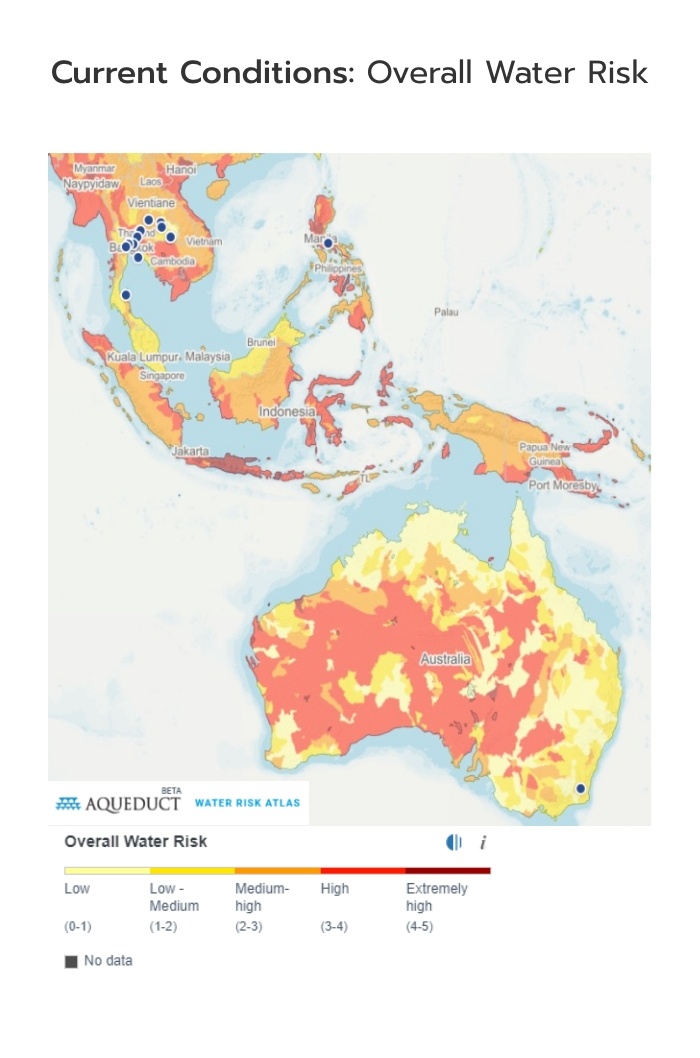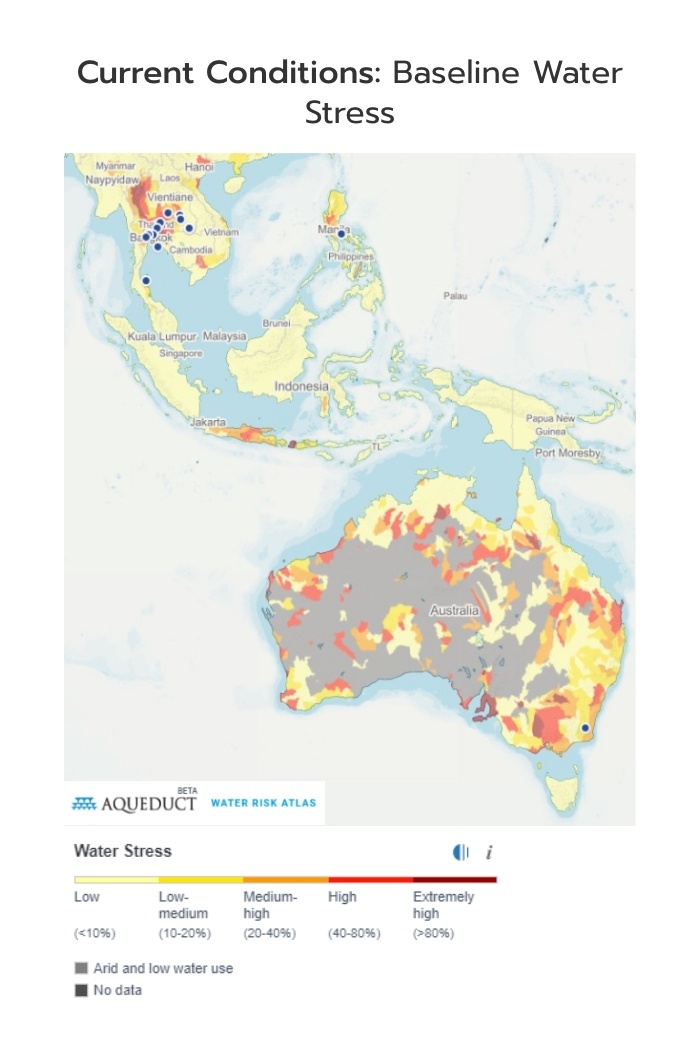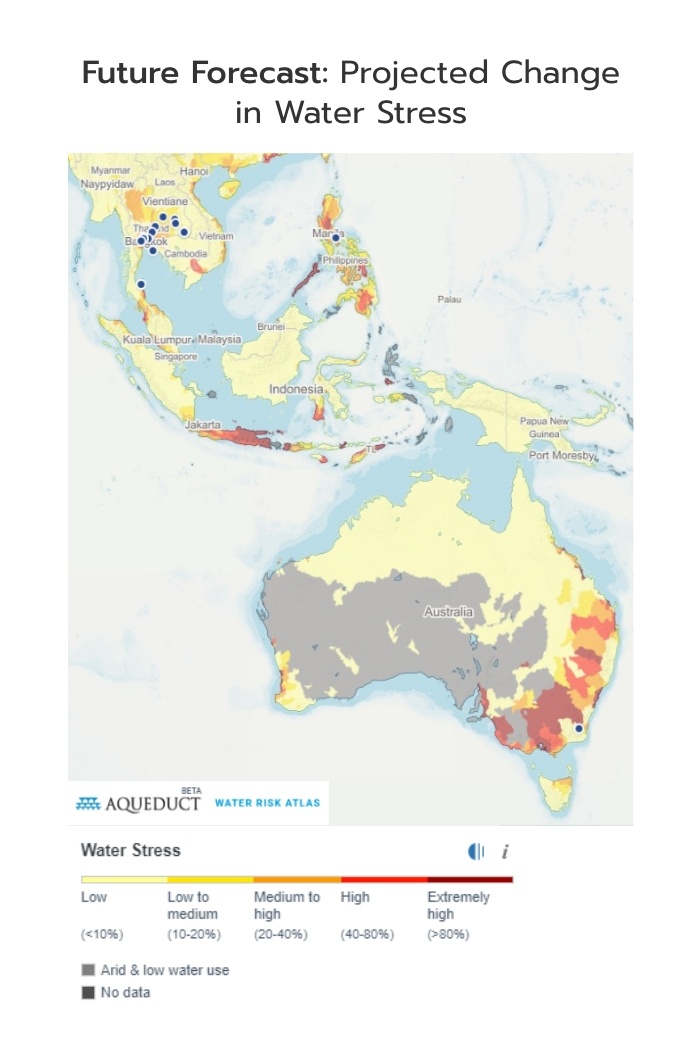Sustainable Water
Why is this Important?
Water is a crucial resource in electricity generation, especially in thermal and hydropower plants. Climate change has led to issues of water scarcity and declining water quality, which directly impact the efficiency and continuity of operations. Additionally, the company faces increasingly stringent from legal requirements regarding water usage and wastewater discharge, prompting EGCO Group to manage water resources carefully to mitigate risks and maintain relationships with communities and stakeholders.
EGCO Group has implemented a comprehensive water resource management approach, covering both water usage and wastewater management. The company focuses on efficient water use, reusing treated wastewater, and reducing water consumption at every operational stage. In addition, EGCO Group has adopted advanced technology in water management to address challenges related to water scarcity and changing water quality. The company also collaborates with communities surrounding its power plants to foster understanding and reduce concerns regarding water usage. Each power plant continually assesses water usage and analyzes water resources, which includes preparing backup water supplies to address potential emergencies. These actions help mitigate risks arising from climate change and legal requirements, enabling EGCO Group to operate efficiently and sustainably.
Sustainability Material Topic: Water & Wastewater Management
Stakeholder Impact on Materiality Topics
Community
Management Approach
Sustainable Water Target
Long Term Target
2024 Target
2024 Performance
Integrated Water Management
[GRI 303-1 (2018), 303-2 (2018)]
EGCO Group’s water management system follows the company’s Environmental Policy and is based on the 3Rs: Reduce, Reuse, and Recycle. As part of our commitment to sustainable water management, we have implemented a water use assessment to identify opportunities for water efficiency improvements, which helps determining actions to reduce water consumption at the potential activities or functions of the operation, such as increasing water reuse cycles in the cooling tower of EGCO Cogen Power Plant which minimized water and chemical use significantly, leading to a reduction of costs associated with cooling tower operations
The company's efforts to minimize raw water consumption are coupled with robust wastewater management strategies. Our initiatives include the reuse of treated wastewater in various power plants like Klongluang Utilities (KLU) and EGCO Cogen, where treated water will be used for garden watering and facility cleaning, helping reduce overall water costs. Moreover, actions to improve wastewater quality are emphasized through our comprehensive wastewater treatment processes and regular quality monitoring to ensure compliance with environmental standards before discharge.
Water recycling is a key aspect of our approach, with projects like the reuse of treated wastewater within Khanom and Quezon Power Plants for various maintenance and operational activities, thereby reducing the impact on local water bodies and decreasing operational costs
To foster a culture of sustainability, awareness training on water efficiency management programs is held as a part of resource efficiency awareness training, which includes resource efficiency on engineering approach training for optimum operation on water-related machine for water and energy conservation, are provided to all employees, ensuring that our workforce is knowledgeable and engaged in our water conservation efforts.
Water Risk Management
Related Projects

Sustainable Water
View ProjectRelated Documents
Policies, Requirements and Performance
-
Sustainability Manual
-
Thai Conservation of Forest Foundation
Performance Data
Updated as of April 2025
The information reported above was prepared in accordance with the Global Reporting Initiative Standards (GRI Standards). It has been audited by an external party and has received limited assurance through the 2024 Annual Report.


